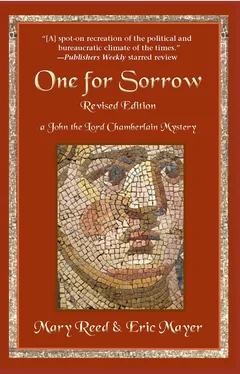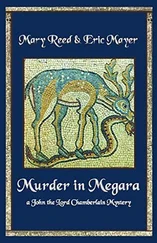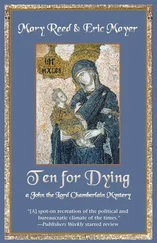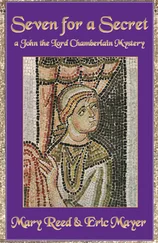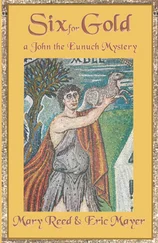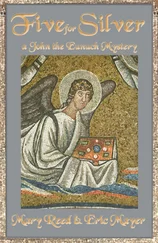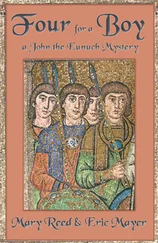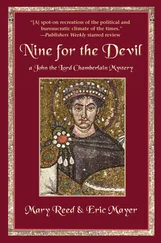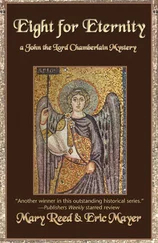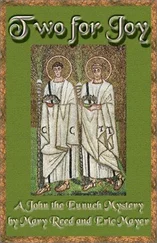Mary Reed - One for Sorrow
Здесь есть возможность читать онлайн «Mary Reed - One for Sorrow» весь текст электронной книги совершенно бесплатно (целиком полную версию без сокращений). В некоторых случаях можно слушать аудио, скачать через торрент в формате fb2 и присутствует краткое содержание. Жанр: Исторический детектив, на английском языке. Описание произведения, (предисловие) а так же отзывы посетителей доступны на портале библиотеки ЛибКат.
- Название:One for Sorrow
- Автор:
- Жанр:
- Год:неизвестен
- ISBN:нет данных
- Рейтинг книги:4 / 5. Голосов: 1
-
Избранное:Добавить в избранное
- Отзывы:
-
Ваша оценка:
- 80
- 1
- 2
- 3
- 4
- 5
One for Sorrow: краткое содержание, описание и аннотация
Предлагаем к чтению аннотацию, описание, краткое содержание или предисловие (зависит от того, что написал сам автор книги «One for Sorrow»). Если вы не нашли необходимую информацию о книге — напишите в комментариях, мы постараемся отыскать её.
One for Sorrow — читать онлайн бесплатно полную книгу (весь текст) целиком
Ниже представлен текст книги, разбитый по страницам. Система сохранения места последней прочитанной страницы, позволяет с удобством читать онлайн бесплатно книгу «One for Sorrow», без необходимости каждый раз заново искать на чём Вы остановились. Поставьте закладку, и сможете в любой момент перейти на страницу, на которой закончили чтение.
Интервал:
Закладка:
“I will need to inform the urban watch, Isis. If it will be a problem….”
She waved a pudgy hand and her numerous rings glittered. “It’s no problem. I pay the prefect more than the tax collector.”
“Besides which, we’re here already,” boomed a voice from behind John. Three helmeted men wearing leather cuirasses and armed with spears clattered down the hall in hobnailed boots.
“We put the bear trainer-what pieces we could find-in the kitchen,” said the man who had addressed John. “A little more blood in the kitchen won’t make any difference. Someone will be round shortly to collect him.” The man directed his gaze to Leukos’ body. “And now, what have we got here?”
Chapter Four
Returning home in the middle of the night, John heard what sounded like cracked sobbing from behind the iron-studded door. His servant Peter had waited up for him. The mournful noise was Peter’s rendition of a Christian hymn written by Justinian. Peter often sang to himself when he thought no one was within earshot.
The dirge stopped at John’s first knock. The door creaked open, and Peter’s leathery face peered out from dim orange lamplight.
“Trouble, master? I can see from your face it is trouble.”
“Yes. Leukos has been killed.”
Peter made the Christian sign. “The Keeper of the Plate. You spoke well of him. I’m sorry.” His expression darkened. “On every side the wicked prowl, as vileness is exalted. So the psalm says. I wouldn’t walk the streets at night. The devil’s abroad. It’s not like ages past.”
John did not believe that past ages had been less evil than the current one, but said nothing. Peter served him well. And he was a free man. John would not have employed a slave. He related what little he knew about Leukos’ death.
“That explains the vision I had,” Peter said. “When you were so late I suddenly saw you dead in an alley. But it must have been Leukos. My eyes are not what they used to be.”
“I would have been back earlier but the urban watch got involved. The prefect’s a prickly character. He’s kept the dagger that was thrust into Leukos’ ribs. I had to mention my official position several times before he agreed to have Leukos’ pouch sent to me after the authorities have examined it.”
“His family would want that.”
“Yes,” agreed John. No doubt Leukos had family somewhere, though he never mentioned them. Like so many in the capital, the man who had risen high may have arrived alone from a distant corner of the empire to seek his fortune, or flee his fate, or do both.
They went upstairs. John did not feel ready for sleep. He went into his study and Peter brought him a jug of the harsh Egyptian wine his master favored.
“I will pray for your friend’s soul,” the servant said as he turned to go.
John sat at his plain wooden desk and poured wine into a clay cup decorated only by a stained crack in its lip. He was troubled by Leukos’ murder and haunted by the bull-leaper. The image of the woman’s dark eyes shouldn’t keep pushing aside the fixed stare of his dead friend.
Mithra, he wondered, is it enough for a man to control his actions, or are you pleased only with those who can control their thoughts as well?
John forced his attention toward Leukos. That was where his duty lay. Soldiers of Mithra were bound to follow duty. They did not allow themselves to give in to personal weakness.
Long ago John had served as an apprentice in the Keeper of the Plate’s storerooms. Although John had advanced to high office, the two men continued to work together frequently. On a few occasions Leukos had visited to share a meal. Yet John knew very little about the man he called a friend. Like John, he rarely spoke about his past and then only in generalities. Perhaps that was one reason John had been at ease with him.
One thing he knew was that no man deserved to be murdered in an alley. It was true that death at the hands of a cutthroat was so common as to be almost in the nature of an accident. Every day some of those who lived in city fell prey to its predators. Anonymous murderers were about as likely to be brought to justice as a deadly plague or fire.
But was Leukos’ death a random street crime?
Why would a common robber use an ornamental dagger with entwined serpents on the hilt?
He had not mentioned that detail to Peter. The superstitious old man would have doubtless seen in it some dreadful omen.
John refilled his cup more than once and as always, his gaze was drawn finally to the wall mosaic, a bucolic landscape of fields and forests. In daylight elaborate clouds filled the big sky. Now, however, the trembling light of a clay lamp danced across a debauched heaven alive with lusty Roman gods and goddesses. The artist had carefully shaped and colored the glass tesserae and pressed them into the drying plaster in such a way that lamplight revealed scurrilous secrets invisible by the light of the sun.
The tax collector who commissioned the mosaic when he owned the house had possessed different tastes than John.
It was not the rioting gods and goddesses that John’s gaze sought. Instead, his attention was drawn to one of the mortals gathered below. A young girl aged perhaps nine or ten stood apart from two boys playing knucklebones. Her eyes were large, almond-shaped, reminding John of the ancient funerary portraits he had seen during his time in Egypt.
There was a touch of naturalism about the girl the other figures lacked. She alone seemed to have been drawn from life. She might have been the artist’s daughter, John thought. Though the girl gave no overt sign of noticing the heavens, her mouth was drawn up in a grimace of pain, suggesting knowledge and suffering beyond her years.
For no reason he could name, John thought of her as Zoe. She was, he knew, a stoic. Much like himself. At times, he could feel her presence in the room.
John lifted the cup again. The rough wine burned the back of his throat. He had been known to ask Zoe questions which he always answered himself, but on this night he did not ask what she would make of a friend stabbed in an alley, or a vision of a lost love.
Zoe stared out at him. The flickering light catching the tesserae forming the corners of her lips hinted at movement, but she did not speak.
Chapter Five
Elsewhere in the city, another girl, lips trembling, warily pushed open the heavy, rotting shutter of a second floor tenement room. The air outside was fetid, smoky, sour with the stench from the alley beneath the window, but still more breathable than the air inside, thick with the smell of humanity and cooking. The girl’s husband rolled over in his sleep, muttering, disturbed by the creak of the shutter. He flung one heavy arm out, barely missing the pot of night soil the girl had set next to the window. He was big and could almost reach across their space, one of several created by subdividing an already small room with thin, rough boards.
During the day he worked as a laborer at the new church Justinian was building. Or had until his fall.
“The dome will rival the heavens,” he had told her.
“Why do the heavens need a rival? Aren’t the heavens we already have good enough?”
“They may be but they are hard to appreciate from a miserable city room.” He must have regretted his words, seeing her frown, because he continued, “You don’t regret leaving the country with me, do you?”
“You’re my husband.” It was a simple statement, carrying everything within it. “We’re not country folk now. This is Constantinople, the greatest city in the world. Our home.”
She had made herself smile.
Then one afternoon he had fallen from high up in that great dome. His fall had been partially broken by scaffolding. There was something wrong with his skull, one leg was broken, and a physician could probably have found other injuries, if there was any money for a physician. That he had survived had been a miracle, but perhaps a short-lived one. His fever had returned.
Читать дальшеИнтервал:
Закладка:
Похожие книги на «One for Sorrow»
Представляем Вашему вниманию похожие книги на «One for Sorrow» списком для выбора. Мы отобрали схожую по названию и смыслу литературу в надежде предоставить читателям больше вариантов отыскать новые, интересные, ещё непрочитанные произведения.
Обсуждение, отзывы о книге «One for Sorrow» и просто собственные мнения читателей. Оставьте ваши комментарии, напишите, что Вы думаете о произведении, его смысле или главных героях. Укажите что конкретно понравилось, а что нет, и почему Вы так считаете.
